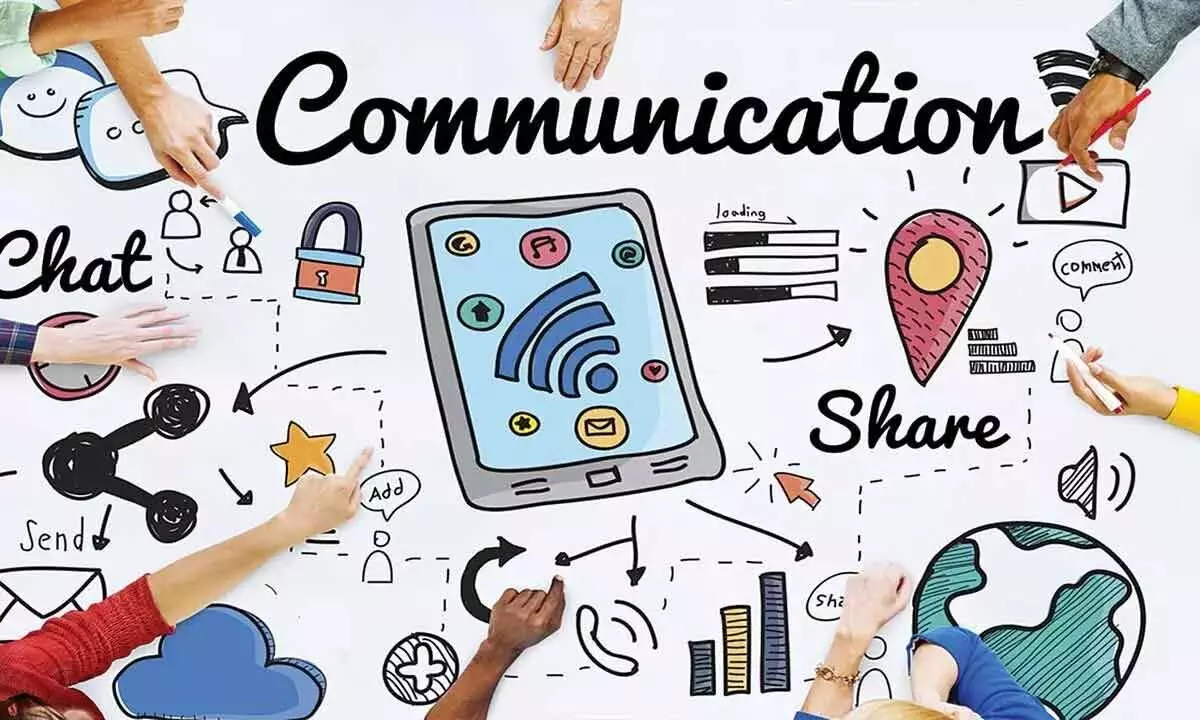The art of judicious conversation key to success in any profession

The art of judicious conversation key to success in any profession
Solution lies in shedding personal egos and forging growth-oriented employer-employee vibes
Conversation is a central feature of our social lives and in a professional setting, it acquires unmatched significance. Exchange of ideas, channels of feedback and bolstering of partnerships through talking are crucial for productivity and a desirable work culture. However, in actuality, conversations might not flow seamlessly and produce the desired results. Studies demonstrate that conversations at the workplace have been far from ideal with all echelons of the work structure affected, from managers to employees, who have strongly articulated discontent with the kind of exchanges that have taken place and the issues that never found expression in dialogue. Why is a central tenet of collaboration fraught with tension today? What can we do about it? These concerns merit an examination.
A survey by Quantum Workplace, as SHRM reports, reveals that half of the respondents found their conversations with colleagues and managers as 'less than great', while as per another survey by Harvard Business Review, a staggering 69 percent of managers found communicating with employees difficult. A common refrain of the respondents, including those from other studies,is about their respective leadership's ineffective and erratic communication. On their part several employers have spoken of discomfort while talking to their employees. What do these trends indicate? If we put our minds to piecing together these findings, we find that the culture of constructive conversations is amiss. Not only are people apprehensive to talk to each other, the dialogue, as and when it happens, will be exercises in futility. Needless to say, this has a negative impact on the productivity of the individuals, on the organization and the value it creates.
What we need in such a backdrop is an elevation of the quality of workplace conversations. The exchanges have to become judicious, mindful and revolve around the growth of the organisation, nay their employer. How do we get to such a desirable end? In order to get the appropriate answer we must begin at the very basis of the problem preventing good conversations.
The aforementioned studies, and the other reports pertaining to the issue on hand, have found out that apprehensions due to hierarchy, social incompatibilities, lack of constructive feedback, paucity of a space to speak your mind and lack of trust and connection among the people are all factors are the hurdles for establishing fruitful communication. A good thing is that all these issues can be dealt with, once conversations become judicious and tethered to the goal of a positive outcome. This paradigm of conversation entails learning an art of not letting narrow divisions get to us as we make way for meaningful discussion.
First and foremost, it is necessary to have a pro-voices culture in the work environment, where opinions and feedback are genuinely welcomed. Personal egos have to be kept aside for a single-minded focus on the subject matter and the organisational hierarchy has to function not as a power-exerting arrangement but as a managerial necessity that promotes articulation of differing views, guidance and responses. This applies to the other end of the spectrum as well and employees also have to contribute by assessing their responses to seemingly unfavourable circumstances. For example, if you were unable to express your ideas at a meeting, instead of nursing unpleasant emotions, find other sources such as mailing proposals to the manager to have your voice heard. In short, everyone has to contribute to building a regime of constructive exchanges. Julia Dhar, in a well-known Ted Talk, outlines how voices can be accommodated when they understand why they have come together in the first place. "Earlier in my career, I worked for the deputy prime minister of New Zealand. This particular government set-up had some of almost everything -- small government conservatives, liberals, the Indigenous people's party and the Green Party. And I recently asked him, what does it take to bring a group like that together and, more importantly, but hold them together?"
He said "Someone, has to take responsibility for reminding them of their shared purpose: caring for people.If we are more focused on what makes us different than being in chorus, then every debate is a fight. If we put our challenges and our problems before us, then every potential ally becomes an adversary."
It is thus necessary to understand that unwanted elements from workplace conversations have to be removed and conversation has to be judicious, keeping in mind the shared purpose of everyone who works, thereby boosting productivity and taking the organisation to newer heights. Judicious conversation is not just a way of carrying one's work out well but also an unflinching commitment to achieving the larger goals.
Constructive conversation is an art, which has to be learnt to propel us to the summits of productivity and cement our commitment to the larger missions that we undertake as professionals.











